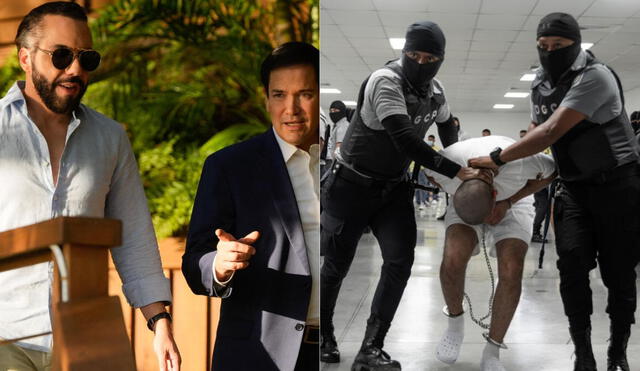Marco Rubio thanks El Salvador’s Bukele for receiving deported 'violent criminals' under the Alien Enemies Act
Despite the effective deportations, the United States has not explained how it managed to confirm that these people are members of the Venezuelan gang called El Tren de Aragua.

In a bold move under the Alien Enemies Act of 1798, the Trump administration has deported over 250 alleged members of the Venezuelan gang Tren de Aragua and MS-13 leaders to El Salvador.
U.S. Secretary of State Marco Rubio confirmed the operation on March 16, praising Salvadoran President Nayib Bukele for his cooperation. Here’s what you need to know about this high-stakes decision.
Deportations under the Alien Enemies Act
The Trump administration invoked the Alien Enemies Act, a rarely used 18th-century law, to deport 238 alleged Tren de Aragua members and 23 MS-13 leaders to El Salvador. The law, historically applied during wartime, allows the U.S. government to detain or remove foreign nationals deemed threats to national security.
Rubio emphasized that the deportations would save U.S. taxpayer dollars, estimating the cost of housing these individuals in El Salvador’s prisons at $6 million for one year.
Rubio’s praise for Bukele’s cooperation
In a statement on social media, Rubio thanked President Bukele for his willingness to incarcerate the deported individuals, calling him “the strongest security leader in our region and a great friend of the United States.”
Key points from Rubio’s announcement:
- MS-13 leaders: Two high-ranking members were sent to face justice in El Salvador.
- Tren de Aragua members: Over 250 alleged gang members were deported.
- Cost efficiency: The move is framed as a cost-saving measure for U.S. taxpayers.
Controversy and legal challenges
The deportations have sparked significant controversy. Critics argue that the U.S. has not provided evidence linking the deported individuals to criminal activities. Venezuela’s government condemned the move, calling it an “infamous and unjust criminalization” of Venezuelan migrants.
Additionally, a federal judge temporarily blocked the use of the Alien Enemies Act on March 15, 2025, raising questions about the legality of the deportations. Despite the ruling, the administration proceeded with the operation, citing national security concerns.
Key Takeaways
- Alien Enemies Act: Used to deport alleged gang members to El Salvador.
- Bukele’s role: El Salvador agreed to house the deportees in its prisons.
- Controversy: Critics question the legality and evidence behind the move.












